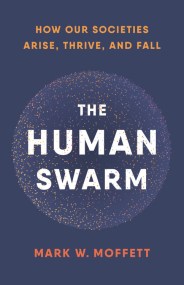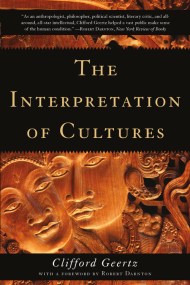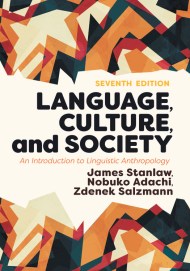Promotion
Use code BESTBOOKS24 for 25% off sitewide + free shipping over $35
By clicking “Accept,” you agree to the use of cookies and similar technologies on your device as set forth in our Cookie Policy and our Privacy Policy. Please note that certain cookies are essential for this website to function properly and do not require user consent to be deployed.
A Death in the Rainforest
How a Language and a Way of Life Came to an End in Papua New Guinea
Contributors
By Don Kulick
Formats and Prices
Price
$16.95Price
$22.95 CADFormat
Format:
- Trade Paperback $16.95 $22.95 CAD
- ebook $11.99 $15.99 CAD
This item is a preorder. Your payment method will be charged immediately, and the product is expected to ship on or around August 18, 2020. This date is subject to change due to shipping delays beyond our control.
Also available from:
—The Wall Street Journal
“If you want to experience a profoundly different culture without the exhausting travel (to say nothing of the cost), this is an excellent choice.”
—The Washington Post
As a young anthropologist, Don Kulick went to the tiny village of Gapun in New Guinea to document the death of the native language, Tayap. He arrived knowing that you can’t study a language without understanding the daily lives of the people who speak it: how they talk to their children, how they argue, how they gossip, how they joke. Over the course of thirty years, as he returned again and again to document the vanishing language, he found himself inexorably drawn into the lives and world of the Gapuners, and implicated in their destiny.
In A Death in the Rainforest, Kulick takes us inside the village as he came to know it, revealing what it is like to live in a difficult-to-get-to village of two hundred people, carved out like a cleft in the middle of a tropical rainforest. And in doing so, he also gives us a brilliant interrogation of what it means to study a culture, an illuminating look at the impact of Western culture on the farthest reaches of the globe—and, ultimately, the story of why this anthropologist realized that he had to give up his study of this language and this village.
-
“Perhaps the finest and most profound account of ethnographic fieldwork and discovery that has ever entered the anthropological literature.”Library Journal “A book not to be missed . . . Don Kulick looks back at thirty years of research into the death of Tayap, the native language in Gapun, a remote village in Papua New Guinea. His honest account of his work and adventures in this village are no less than fascinating . . . His funny, warm, and at times sad account of the changing way of life in Gapun makes for an informative and unforgettable read, and one that I wholeheartedly enjoyed.”
I>The Wall Street Journal
“If you want to experience a profoundly different culture without the exhausting travel (to say nothing of the cost), this is an excellent choice.”
—The Washington Post
“What does it take to study a culture? Anthropologist Don Kulick visited the small village of Gapun in New Guinea on and off for 30 years to study its dying language, Tayap. Blending academic discourse, linguistics and his personal stories about life in the remote community, A Death in the Rainforest illuminates the ways a society can change over time and become swallowed by forces of the outside world.”
I>Time
“An important history lesson from an anthropologist who spent three decades watching a language and a people go extinct as the rainforest around them disappeared.”—The Revelator
“Anthropologist Kulick tells a story of cultural and linguistic transformation and exchange in this clever, empathetic memoir of his time spent in Gapun, a remote village in Papua New Guinea . . . Despite lots of fascinating detail about a culture that appears very different from the modern West, the book concludes with a firm and moving reminder about shared similarities and an exhortation to better honor collective responsibilities. This frank, passionate work will move readers interested in a thoughtful contemplation of culture and globalization.”
I>Publishers Weekly
“In this captivating narrative, [Kulick] considers complex questions about race and power in anthropological research, the nature of relationships among very different people, and the challenges of living in such a demanding environment. Kulick's engrossing, thought-provoking, and transporting chronicle will be enjoyed by National Geographic fans and all readers interested in cultural investigations.”
I>Booklist
“Kulick . . . wears his scholar's hat casually in this deeply personal, engaging inquiry . . . A sad and uplifting, ultimately poignant exploration.”
I>Kirkus Reviews
“[Don Kulick’s] stories of adjusting to daily life in the village are both humorous and compassionate. Throughout his time working in Gapun, he is distinctly aware of the field of anthropology’s conflicting eras of practice, from its colonialist past up to the highly culturally sensitive present. Kulick allows his research to reveal his own cultural bias and acknowledge his privilege; in doing so, he details the reasons that support his theory as to why languages die in a manner that shows strong social responsibility and fairness. Recommended for a readership of varying ages, from young adults with an interest in cultural anthropology to college students and academics.”
- On Sale
- Aug 18, 2020
- Page Count
- 304 pages
- Publisher
- Algonquin Books
- ISBN-13
- 9781643750477
Newsletter Signup
By clicking ‘Sign Up,’ I acknowledge that I have read and agree to Hachette Book Group’s Privacy Policy and Terms of Use









